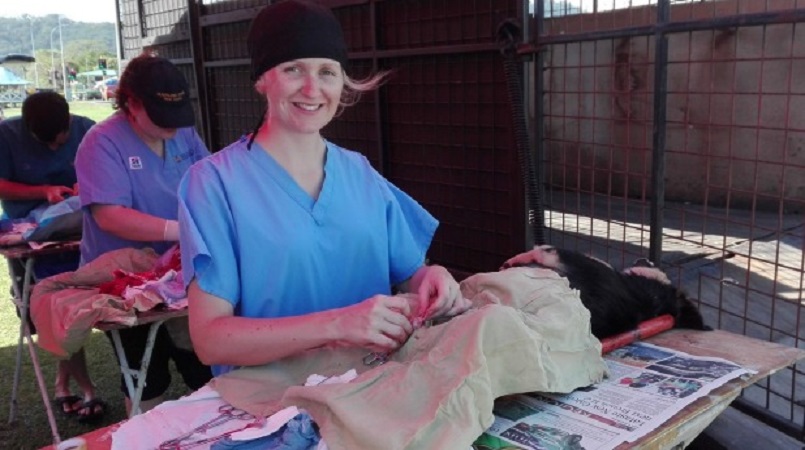
Kiwi vets and veterinary students have made a fifth trip to Samoa to help stem the soaring dog population.
Massey University staff run the annual trips to the main island of Upolu as a special topic for students, and set up travelling surgical clinics to offer free neutering when a dog is registered.
This year, the first team of staff arrived in July, and the clinics will wrap up in September.
The July group neutered 200 dogs, Massey veterinary resident Malcolm Jack said, so 600 dogs could be operated on this year.
"If you do that every year, it makes a difference."
The island has only one vet, the Animal Protection Society of Samoa, who worked with them on the project.
Several other charitable organisations had also run similar volunteer programmes, but Massey was the only organisation contributing regularly, Massey veterinary resident Laura Thornton said.
"Speaking to people in the capital they think [the dog population] has improved with the neutering programme, but it was noticeable how many un-neutered dogs there were, [and] their condition was variable.
"I don't think they have money to pay for veterinary care, and there had been a lot of dog fights, and dogs being hit by cars or becoming lame, because they are left [roaming] a lot, and would just be beside the road."
As well as helping control the population, neutering can help curb aggressiveness, roaming and make fighting less likely.
The July group also vaccinated about 150 puppies for parvovirus, gave flea treatments and treated other sick animals where they could, using supplies donated by Palmerston North businesses.
Fifth-year student Stephanie Wood said locals were happy to have accessible clinics visit the villages, and the team received big welcomes and lunches in most places they visited.
"It was a good place to apply the skills we've learned and get more experience, and a way of doing volunteer work.
"There's a big population of stray dogs, but the ones we were doing were the registered ones."
Jack said it was satisfying seeing the students develop their skills during the intensive field work.
"Over a week they get to do a lot in terms of surgical skills, you see them progress quite a long way."
The team are fundraising to cover costs for the materials involved. To neuter a dog costs them about $30 in materials. So far only $820 has been raised through the 'MasseyvetsSamoa' Givealittle page, with a goal of $15,000.
"You work with what you've got, but if there's more money you can do more," Jack said.
